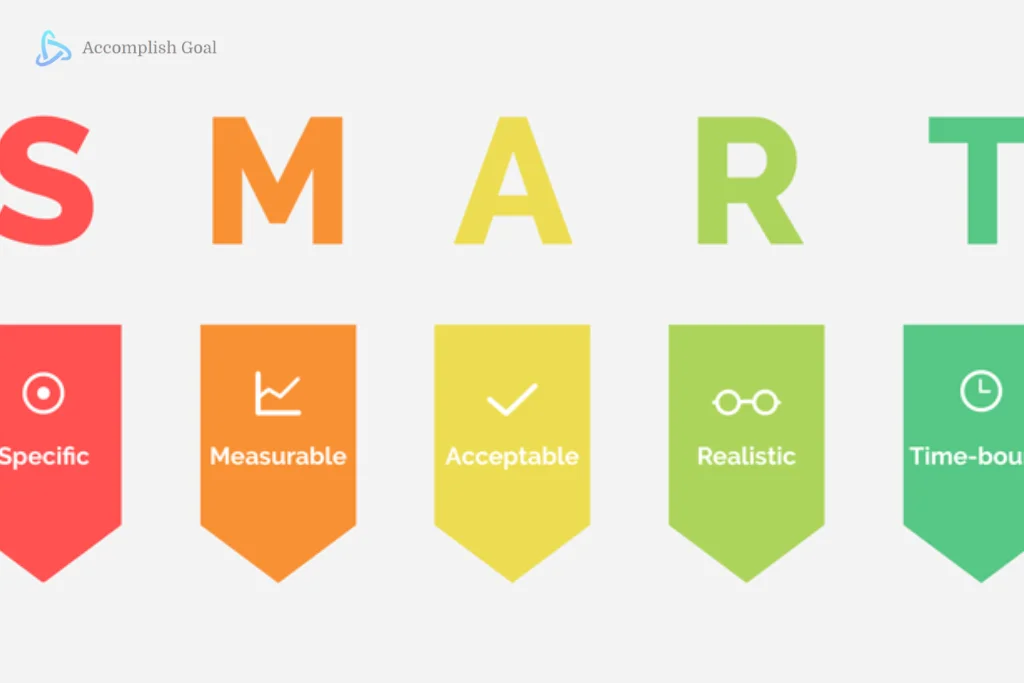Are you in search of a key to unlocking your goals? Do you want to take your success to the next level, but don’t know where to start? Then this blog post is for you! In it, we will explore the SMART strategy—Specific, Measurable, Attainable, Relevant and Time-Based—to help you achieve any goal. So let’s get started and learn how to use SMART strategies to reach our full potential!
Define Your Goals
The key to achieving your goals is to define them clearly. Before you can set SMART goals, you need to have a clear understanding of what you want to achieve. Start by asking yourself questions like “What do I want to accomplish?” and “Why is this important to me?”. Make sure you’re specific about what you want to achieve, as this will help you to create measurable and attainable goals. Once you have a clear idea of what you want to achieve, you can move on to setting SMART goals.
Set SMART Goals
Setting SMART goals is an important step in achieving your goals. SMART is an acronym for Specific, Measurable, Attainable, Relevant, and Time-bound. The concept was developed by Edwin Locke and Gary Latham, who identified five criteria for setting goals that would lead to successful outcomes. When you set SMART goals, you’re making sure that the goals you set are tailored to your personal needs and abilities. SMART goals are specific so that you can focus on the task at hand, measurable so that you can track your progress, attainable so that you can realistically achieve them, relevant so that they make sense in the context of your life, and time-bound so that you can work towards them within a specific timeframe. Following these criteria will help make sure that you are setting goals that are achievable and that you can take action on.
Break Down Your Goals into Actionable Steps
Breaking down your goals into actionable steps is essential in achieving them. This helps you visualize and plan out the steps you need to take to get there. Start by making a list of all the tasks or milestones you need to complete in order to reach your goal. This will help you stay on track and measure your progress over time. Having an action plan also makes it easier to stay motivated and avoid procrastination. Make sure to break down each task into smaller, more manageable steps that can be easily achieved. This will help you stay focused on the end goal while taking one step at a time.
Create a Timeline for Accomplishing Your Goals
Once you have broken down your goal into actionable steps, it is important to create a timeline for achieving those goals. Establishing a timeline gives you an idea of when you need to complete each step, and helps you stay on track. It also helps to keep you accountable by allowing you to measure your progress and make necessary adjustments if needed.
When creating a timeline, it is important to be realistic. Setting unrealistic deadlines can be overwhelming and can lead to burnout. Make sure to factor in how long it will realistically take to complete each step. You may also want to include checkpoints or milestones along the way to help you stay on track.
Once you have created your timeline, it is important to review it regularly. This will help you stay focused on your goals and ensure that you stay on track. While it is important to make adjustments to your timeline if needed, it is also important to remember your ultimate goal and stay focused on the end result.
Develop a Positive Mindset
It’s essential to create a positive mindset when it comes to achieving your goals. Believe in yourself and your ability to achieve your goals. Keeping a positive outlook can help you stay motivated and focused on your goals. Visualize yourself achieving your goals and think about the feelings of success. Adopt a “can-do” attitude, and don’t let negative thoughts hold you back. Remind yourself of the reasons why you’re working towards your goals and why it’s important to you. A positive outlook will keep you motivated and focused on your goals, and help you make progress on your journey towards success.
Create Strategies to Overcome Obstacles
Once you’ve identified and broken down your goals into achievable steps, it’s important to develop strategies to overcome any obstacles you may encounter. After all, the only way to reach your goals is to work your way through the challenges you face. Start by examining the obstacles you’re likely to encounter and create strategies to address them. Think of short-term strategies that you can use to get around any roadblocks and long-term strategies that will help you stay on track. Identify any resources you may need and create a plan to acquire them. It’s also important to create contingencies in case something unexpected arises. By developing strategies to overcome obstacles, you can increase the chances of achieving your goals.
Set Up a Support System
Having a support system is essential for achieving any goal. You don’t have to go it alone! Reach out to your friends, family, or even a mentor for help and encouragement. Having an outside perspective can help you stay motivated and on track. Additionally, having someone you can be accountable to can help you stay focused and reach your goals faster. Talk to your support system about your goals and create a plan to check in with each other regularly. This will help you stay on the right path and give you the push you need to keep going when the going gets tough.
Track and Measure Your Progress
Once you have created specific, measurable, attainable, relevant, and time-based (SMART) goals, you need to track and measure your progress in order to ensure that you are on track to achieve them. This is an important step in the goal-setting process, as it allows you to identify areas where you may need to adjust your plans or strategies in order to stay on track.
When tracking and measuring your progress, it is important to set up a system that will give you a clear view of your progress. You can do this by setting up a tracking spreadsheet, tracking software, or a visual system such as a Kanban board. Whatever system you choose, make sure that it is easy to use and understand, so that you can quickly check your progress and make adjustments if necessary.
Additionally, it is important to measure your progress against your goal. You can do this by setting milestones and reviewing your progress to make sure that you are on track. If you are falling behind, you may need to adjust your strategies or timelines in order to get back on track.
Finally, make sure to celebrate your successes as you achieve your goals. This will help to motivate you to continue striving for your goals, and will also help to keep you focused.
Celebrate Your Successes
Once you’ve achieved your goal, it’s important to take the time to celebrate your success. This is not just about rewarding yourself, but it’s also about recognizing your hard work and the positive changes you’ve made in your life. Celebrating your accomplishments can help to motivate you and keep you on track to reach future goals. There are many different ways to celebrate your successes, such as throwing a party, treating yourself to something special, or just taking a moment to reflect on how far you’ve come. No matter how you choose to celebrate, make sure to take the time to recognize your achievements and appreciate what you’ve done. Doing so will help to keep you motivated and inspire you to continue setting and achieving SMART goals.
Reflect and Reassess Your Goals
Reaching your goals doesn’t mean you can rest on your laurels – in fact, it’s important to take the time to reflect and reassess your goals. Once you’ve achieved a goal, it’s essential to look back and analyze what worked and what didn’t. This process can help you to identify areas for improvement and plan for future goals. It’s also important to consider your progress and reflect on how far you have come. Acknowledge your successes and take pride in what you have achieved. Additionally, reassessing your goals can



